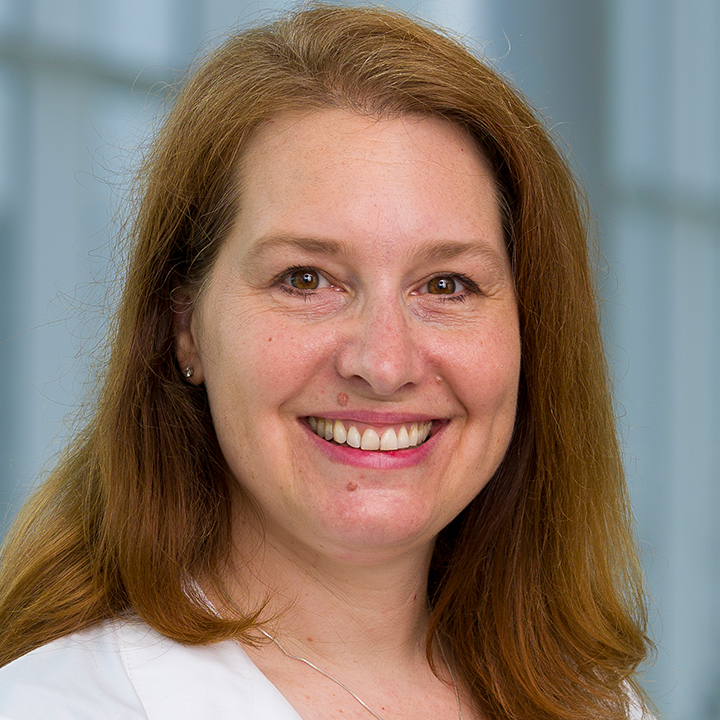Carrie McAdams, M.D., Ph.D.
- Associate Professor

“Why go into psychiatry? Changing a human mind should be easier than changing their brain structure.”
Contributions to STEMM
“Every day is different for me between clinical care, teaching, and research,” Dr. McAdams said of her position as a physician-scientist at UT Southwestern.
“As an outpatient psychiatrist, I treat patients with eating disorders. My inspiration comes from the patients with eating disorders, all of whom deserve treatments that have a higher success rate than currently exist.”
As a scientist, Dr. McAdams “teaches residents and medical students about eating disorders, including the clinical and research aspects of my program.” The primary focus of her research in the McAdams lab is “on the brain and utilizing functional magnetic resonance imaging to study thinking. This technology allows us to take pictures of people's brains while they think about themselves or play games that involve interactions with other people. These tasks have allowed us to identify very specific disruptions in social behaviors in adolescents and women with eating disorders.”
Taking Risks
“I have taken a lot of risks,” Dr. McAdams said of her path to psychiatry, listing a “nontraditional career path, four children, changing research fields entirely in my mid-30s without on-site mentorship, and building a new program based on clinical relevance.” Taking on these risks taught her multiple things about her chosen career path:
“I have learned that what matters to me is that my work is meaningful to people with these illnesses, I work with people who appreciate one another, and I work with people who do work rather than delegate work.”
The UT Southwestern Difference
“Learning new things from the data we collect is the most exciting part,” Dr. McAdams said of her position at UT Southwestern.
View Academic Profile“The next best part is the scientific design questions, including planning future projects for our team and mentoring other people in their design.” From a patient perspective, Dr. McAdams derives her “motivation from listening to the patients' stories that support the need for a clinical transformation in the approach to and care of patients with eating disorders.”